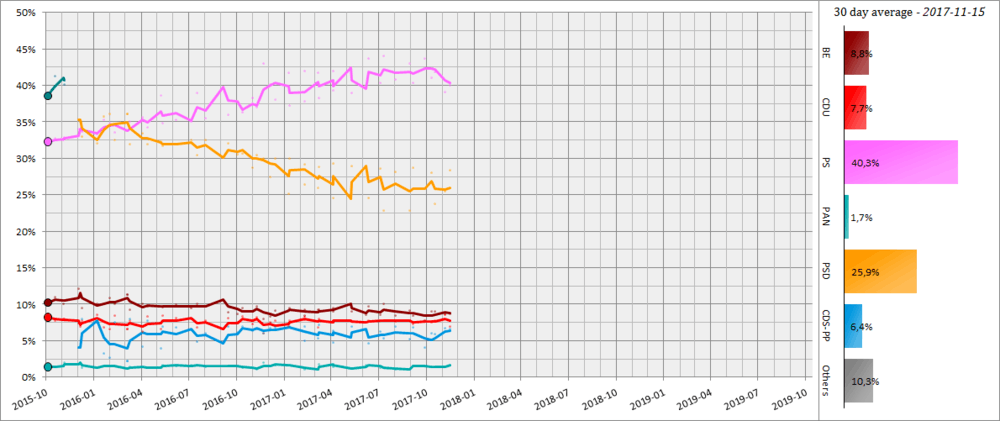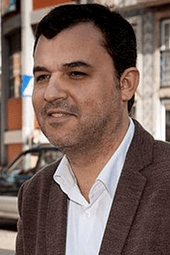Next Portuguese legislative election
|
| |||||||||||||||||||||||||||||||||||||||||||||||||||||||||||||||||||||||||
| |||||||||||||||||||||||||||||||||||||||||||||||||||||||||||||||||||||||||
230 seats to the Assembly of the Republic 116 seats needed for a majority | |||||||||||||||||||||||||||||||||||||||||||||||||||||||||||||||||||||||||
|---|---|---|---|---|---|---|---|---|---|---|---|---|---|---|---|---|---|---|---|---|---|---|---|---|---|---|---|---|---|---|---|---|---|---|---|---|---|---|---|---|---|---|---|---|---|---|---|---|---|---|---|---|---|---|---|---|---|---|---|---|---|---|---|---|---|---|---|---|---|---|---|---|---|
| |||||||||||||||||||||||||||||||||||||||||||||||||||||||||||||||||||||||||
.svg.png) Distribution of MP's to be elected by district. | |||||||||||||||||||||||||||||||||||||||||||||||||||||||||||||||||||||||||
| |||||||||||||||||||||||||||||||||||||||||||||||||||||||||||||||||||||||||
The Next Portuguese legislative election will be held no later than October 2019. At stake will be all 230 seats to the Assembly of the Republic.
Background
Politics of Portugal
The President of Portugal has the power to dissolve the Assembly of the Republic by their own will. Unlike in other countries, the President can refuse to dissolve the parliament at the request of the Prime Minister or the Assembly of the Republic and all the parties represented in Parliament. If the Prime Minister resigns, the President must appoint a new Prime Minister after listening to all the parties represented in Parliament and then the government programme must be subject to discussion by the Assembly of the Republic, whose members of parliament may present a motion to reject the upcoming government.
PSD leadership election 2018
After a disappointing result in the 2017 local elections, in which the PSD won just 30% of the votes and 98 mayoral races against the 38% of the PS and its 160 elected mayors, Pedro Passos Coelho announced he would not run for a 5th term as PSD leader.[1] After that, Rui Rio, former mayor of Porto (2002-2013), announced he was running for the leadership.[2] Shortly after, Pedro Santana Lopes, former mayor of Lisbon (2002-2004; 2005) and Prime Minister (2004-2005), announced he was also running for the leadership of the party.[3] Election day was scheduled to January 13, 2018. After a long campaign, Rui Rio was elected with 54.15% of the votes, against the 45.85% of Santana Lopes. Turnout was 60.3%.[4] Rui Rio was officially confirmed as party leader in the PSD congress, in Lisbon, between 16 and 18 February 2018.
Date
According to the Portuguese Constitution, an election must be called between 14 September and 14 October of the year that the legislature ends. The election is called by the President of Portugal but is not called at the request of the Prime Minister; however, the President must listen to all of the parties represented in Parliament and the election day must be announced at least 60 days before the election.[5] If an election is called during an ongoing legislature (dissolution of parliament) it must be held at least in 55 days. Election day is the same in all multi-seats constituencies, and should fall on a Sunday or national holiday. The next legislative election must, therefore, take place no later than 13 October 2019.[6]
Electoral system
The Parliament of the Portuguese Republic consists of a single chamber, the Assembly of the Republic, composed of 230 members directly elected by universal adult suffrage for a maximum term of four years. Assembly members represent the entire country, rather than the constituencies in which they were elected. Governments do not require absolute majority support of the Assembly to hold office, as even if the number of opposers of government is larger than that of the supporters, the number of opposers still needs to be equal or greater than 116 (absolute majority) for both the Government's Programme to be rejected or for a motion of no confidence to be approved.[7]
Each one of Portugal's eighteen administrative districts, as well as each one of the country's two autonomous regions - the Azores and Madeira - is an electoral constituency. Portuguese voters residing outside the national territory are grouped into two electoral constituencies - Europe and the rest of the world - each one of which elects two Assembly members. The remaining 226 seats are allocated among the national territory constituencies in proportion to their number of registered electors.
Political parties and party coalitions may present lists of candidates. The lists are closed, so electors may not choose individual candidates in or alter the order of such lists. Electors cast a ballot for a single list. The seats in each constituency are apportioned according to the largest average method of proportional representation (PR), conceived by the Belgian mathematician Victor d'Hondt in 1899. Although there is no statutory threshold for participation in the allocation of Assembly seats, the application of the d'Hondt method introduces a de facto threshold at the constituency level.[8]
Parties
The table below lists parties currently represented in the Assembly of the Republic.
| Name | Ideology | Leader | 2015 result | |||
|---|---|---|---|---|---|---|
| Votes (%) | Seats | |||||
| PPD/PSD | Social Democratic Party Partido Social Democrata |
Liberal conservatism | Rui Rio | 38.6% [lower-alpha 1] |
89 / 230 | |
| CDS-PP | CDS – People's Party Centro Democrático e Social – Partido Popular |
Christian democracy | Assunção Cristas | 18 / 230 | ||
| PS | Socialist Party Partido Socialista |
Social democracy | António Costa | 32.3% | 86 / 230 | |
| BE | Left Bloc Bloco de Esquerda |
Democratic socialism | Catarina Martins | 10.2% | 19 / 230 | |
| PCP | Portuguese Communist Party Partido Comunista Português |
Communism | Jerónimo de Sousa | 8.3% [lower-alpha 2] |
15 / 230 | |
| PEV | Ecologist Party "The Greens" Partido Ecologista "Os Verdes" |
Eco-socialism | Heloísa Apolónia | 2 / 230 | ||
| PAN | People-Animals-Nature Pessoas-Animais-Natureza |
Animal welfare | André Lourenço e Silva | 1.4% | 1 / 230 | |
Opinion polling

See also
Notes
- 1 2 3 The Social Democratic Party (PSD) and the People's Party (CDS–PP) contested the 2015 election in a coalition called Portugal Ahead (PàF) and won a combined 38.6% of the vote and elected 107 MP's to parliament.
- 1 2 The Portuguese Communist Party (PCP) and the Ecologist Party "The Greens" (PEV) contested the 2015 election in a coalition called Unitary Democratic Coalition (CDU) and won a combined 8.3% of the vote and elected 17 MP's to parliament.
References
- ↑ "Passos Coelho não se recandidata à liderança do PSD". Expresso (in Portuguese). 2017.
- ↑ "Rui Rio anuncia quarta-feira candidatura à liderança do PSD", RTP, 6 October 2017. Retrieved 20 January 2018.
- ↑ "PSD. Santana Lopes apresenta candidatura à liderança este domingo", RTP, 17 October 2017. Retrieved 20 January 2018.
- ↑ "Rui Rio é o novo presidente do PSD", Jornal de Negócios, 13 January 2018. Retrieved 20 January 2018.
- ↑ "Archived copy" (PDF). Archived from the original (PDF) on 2014-10-22. Retrieved 2015-10-07.
- ↑ Electoral law to the Assembly of the Republic
- ↑ "Constitution of the Portuguese Republic" (PDF).
- ↑ "Election Resources on the Internet: Portugal - The Electoral System". Electionresources.org. Retrieved 2014-08-04.
.jpg)
_2.jpg)
.png)
.png)
.jpg)
